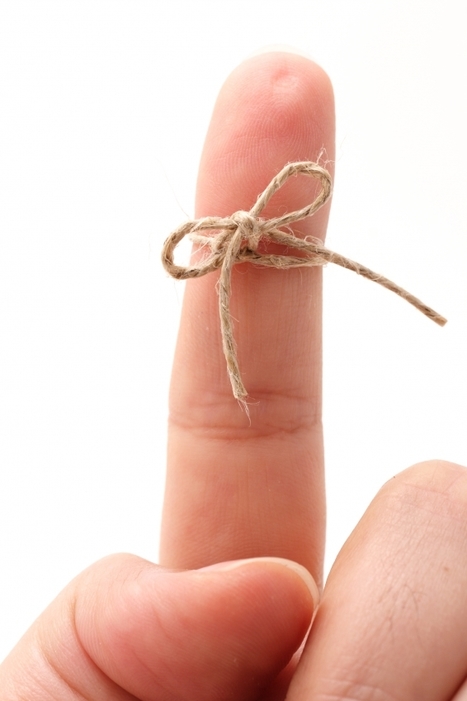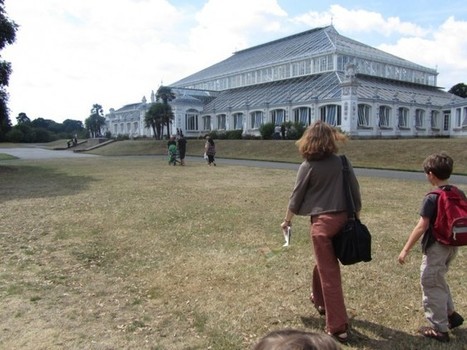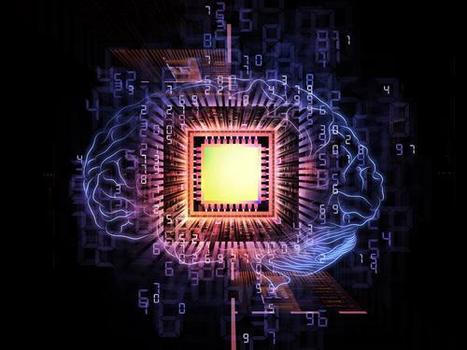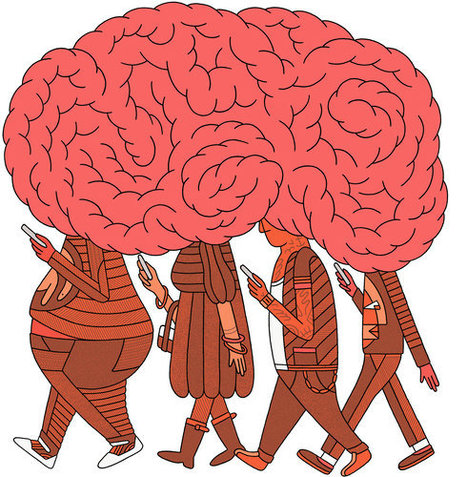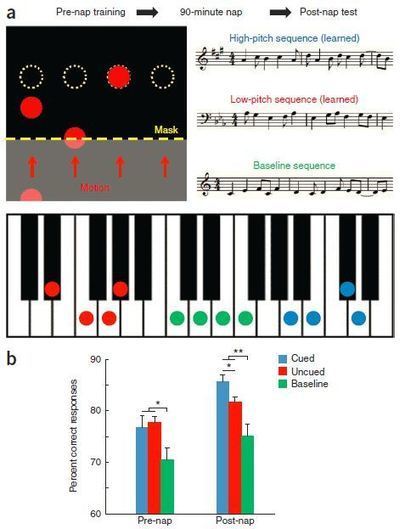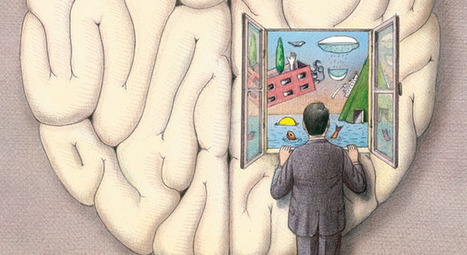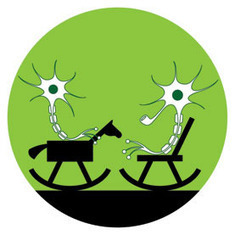 Your new post is loading...
 Your new post is loading...

|
Scooped by
Sakis Koukouvis
February 11, 2013 4:46 PM
|
Immune cells are like the Hatfields and McCoys of our bodies--once wronged, they never, ever forget. This is how we gain immunity, and it’s why vaccines work: Immune cells develop a memory of an invading pathogen, and they build an alert system to find and fight it should it ever return. But a new study by Stanford researchers adds a new wrinkle to this long-held immune theory. It turns out immune cells can develop this memory-like state even for pathogens they’ve never met. This may come from exposure to harmless microbes -- or the memories may actually be borrowed from other, more experienced cells.

|
Scooped by
Sakis Koukouvis
January 2, 2013 6:08 PM
|
A study by Johns Hopkins researchers has shown that a widely accepted model of long-term memory formation -- that it hinges on a single enzyme in the brain -- is flawed. The new study, published in the Jan. 2 issue of Nature, found that mice lacking the enzyme that purportedly builds memory were in fact still able to form long-term memories as well as normal mice could.

|
Rescooped by
Sakis Koukouvis
from Psychology Update
December 7, 2012 1:41 AM
|
Hunger would seem to be a fairly straightforward instinct: Depending on how much you eat, you either will or you won't be hungry afterward. As it turns out, our relationship to food may not be so simple. A new study, published this week in the journal PLoS ONE, adds a new wrinkle by suggesting our short-term memory also may play a role in appetite. Several hours after a meal, the study authors found, people’s hunger levels were predicted not by how much they’d eaten, but rather by how much food they’d seen in front of them—in other words, how much they remembered eating.
Via Natalie Stewart

|
Scooped by
Sakis Koukouvis
November 10, 2012 5:10 PM
|
Many children spontaneously report memories of 'past lives'. For believers, this is evidence for reincarnation; for others, it's a psychological oddity. But what happens when they grow up?

|
Scooped by
Sakis Koukouvis
October 7, 2012 1:49 PM
|
UCLA researchers have for the first time measured the activity of a brain region known to be involved in learning, memory and Alzheimer's disease during sleep. They discovered that this part of the brain behaves as if it's remembering something, even under anesthesia, a finding that counters conventional theories about memory consolidation during sleep.

|
Rescooped by
Sakis Koukouvis
from Soul Fill
August 10, 2012 2:11 AM
|
Scientists have discovered intriguing differences in the brains and mental processes of an extraordinary group of people who can effortlessly recall every moment of their lives since about age 10.
Via Romylos Pantzakis, Janet Devlin, Mariana Soffer

|
Scooped by
Sakis Koukouvis
August 7, 2012 6:20 PM
|

|
Scooped by
Sakis Koukouvis
June 25, 2012 4:59 PM
|
If you aren't able to master a tune even after hours of practicing, then perhaps you should sleep on it. We mean try sleeping while the tune is being played in the background.
More on SLEEP: http://www.scoop.it/t/science-news?tag=sleep

|
Scooped by
Sakis Koukouvis
June 17, 2012 9:25 AM
|
Memories can form in even very young children, it seems, but it is not clear that they can be retrieved.

|
Scooped by
Sakis Koukouvis
June 16, 2012 5:36 PM
|
Psychologist suggests synthesthesia may underlie creature’s apparent memory feats...

|
Scooped by
Sakis Koukouvis
June 13, 2012 4:42 AM
|
One of the brain's jobs is to help us figure out what's important enough to be remembered. Scientists have achieved some insight into how fleeting experiences become memories in the brain.

|
Scooped by
Sakis Koukouvis
May 31, 2012 2:49 PM
|
Sara Mednick, a psychologist at UC San Diego, talks about how napping improves mind and memory...

|
Scooped by
Sakis Koukouvis
May 24, 2012 11:48 AM
|
For most of us, it's tricky enough to remember what we were doing this time last week, let alone on some random day years ago. But for a blind 20-year-old man referred to by researchers as HK, every day of his life since the age of about eleven is recorded in his memory in detail. HK has a rare condition known as hyperthymesia and his is only the second case ever documented in the scientific literature (the first, a woman known as AJ, was reported in 2006.
MEMORY: http://www.scoop.it/t/science-news?tag=memory
|

|
Scooped by
Sakis Koukouvis
February 10, 2013 10:13 AM
|
Interviewers are likely to lead witnesses astray. It's time for the machines to start asking the questions

|
Scooped by
Sakis Koukouvis
December 23, 2012 10:27 AM
|
Who owns your memories? You’d think that would be you. But in a short interview with Claudia Dreifus at the New York Times, neuroethicist Matthew Liao notes that to the extent our devices are serving as outsourced personal memory banks, you may be sharing ownership with, say, Facebook:

|
Scooped by
Sakis Koukouvis
December 1, 2012 5:02 PM
|
My BBC Future column from a few days ago. The original is here. I’m donating the fee from this article to Wikipedia. Read the column and it should be obvious why. Perhaps you should too: dona...

|
Scooped by
Sakis Koukouvis
November 4, 2012 2:18 PM
|
John Smart, co-founder of the Brain Preservation Foundation—an organization dedicated to the study of maintaining brain function after our biological death—argues that the "redundant, resilient and distributed" nature of long-term memory makes it possible to preserve significant portions of our identity after death.

|
Scooped by
Sakis Koukouvis
August 10, 2012 2:36 AM
|
The sought-after equanimity of "living in the moment" may be impossible, according to neuroscientists who've pinpointed a brain area responsible for using past decisions and outcomes to guide future behavior.

|
Scooped by
Sakis Koukouvis
August 8, 2012 1:31 PM
|
No one can remember everything, and the Web can be a great mind-expanding device.

|
Scooped by
Sakis Koukouvis
June 28, 2012 5:33 PM
|

|
Scooped by
Sakis Koukouvis
June 17, 2012 7:11 PM
|
Join us at MingandOcean.org. Video intro to BLUEMiND2 by Dr.

|
Rescooped by
Sakis Koukouvis
from The virtual life
June 17, 2012 8:47 AM
|
They called it a myth as fantastical as the unicorn, but scientists have now found the engram, the physical trace of memory in the brain. . Visit Discover Magazine to read this article and other exclusive science and technology news stories.
Via Wildcat2030, Apmel

|
Scooped by
Sakis Koukouvis
June 14, 2012 6:33 PM
|
This video illustrates the creation of memory threads. A simulated P2P network is generated where each peer contains digital memories.

|
Scooped by
Sakis Koukouvis
May 31, 2012 3:22 PM
|
I've been a little disconcerted by the recent appearance in the popular science press of a number of articles seeming to claim that we're just around the corner from being able to erase painful or traumatic memories
Brain cells help us recall the past by taking on new roles as they age...
Via Don L. Price
|

 Your new post is loading...
Your new post is loading...
 Your new post is loading...
Your new post is loading...



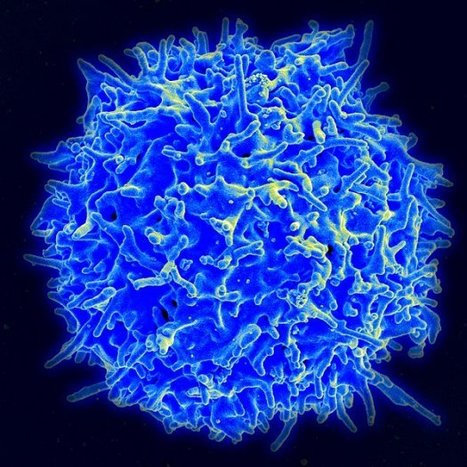





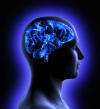




![[VIDEO] Finding Your Science: Nap Time! | Science News | Scoop.it](https://img.scoop.it/cKVuSbwPYDLFCLUlH0rARzl72eJkfbmt4t8yenImKBVvK0kTmF0xjctABnaLJIm9)
